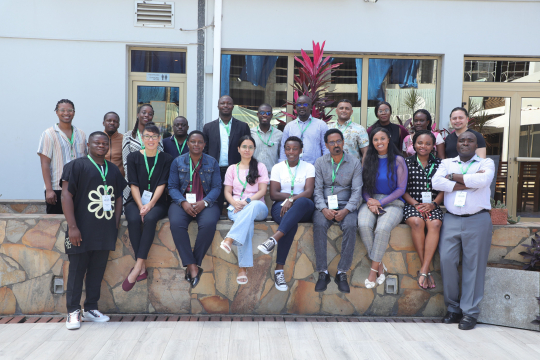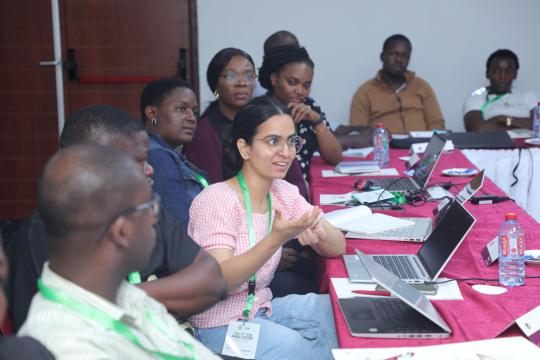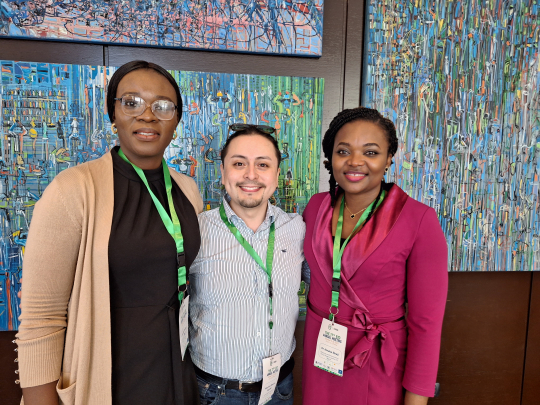The Gender in Development Economics course held in Accra, Ghana concluded with enthusiastic participants expressing their renewed commitment to gender studies and its application in their research. Over three days, 19 early career researchers from the EfD network engaged with the concept of gender and its relevance to research, equipping themselves with valuable tools and knowledge in gender economics.
The course, which ran from October 2 to October 4 at the Accra City Hotel, aimed to foster a deeper understanding of gender dynamics and its critical role in research. The participants brought varying levels of experience in gender economics to the course, which made interactions interesting and meaningful. Several participants shared their enthusiasm for gender studies.
"The gender course has intensified my interest in gender studies. There is a project that I’ve always been interested in doing, and this course has given me the push to move forward and put this project together, " Frank Adusah-Poku, EfD Ghana stated.
"It’s a timely training that will improve the quality of our joint research on the gendered impact of armed banditry on agricultural production in Nigeria," Chizoba Oranu noted.
The course, facilitated by Amber Peterman, emphasized that gender analysis is a crucial tool to enhance research quality. "It gives you a better understanding of the issues, it gives you a better understanding of the potential solutions, and so doing gender economics is just doing better research," explained Amber Peterman.
They learned by doing
The Gender in Development Economics course employed a variety of teaching and learning strategies, including podcasts, newspaper reviews, and the examination of the latest studies in the field. Practical sessions allowed participants to apply their newly acquired knowledge to real-world research topics, reinforcing their learning. Amaka Nnaji, a participant, described the course as interactive and engaging, emphasizing that "it was easier to learn because we were learning by doing."
Participants also had the opportunity to explore a wide range of topics, including gender in development economics, theory and conceptual frameworks, themes in development, and cross-cutting methodological issues.
A beneficial course for all
Despite varying levels of experience in gender economics at the course's outset, participants exhibited an eager interest in learning how to apply the gender lens to their research. Amber Peterman noted that they were keen on understanding the techniques, measurement issues, and the potential benefits of integrating gender analysis into their work.
Mauricio Oyarzo Aguilar from EfD Chile shared his own experience as a first-time participant in formal gender training. "It gave me a new perspective to introduce in my work and inspiration for me to use mixed methods in my research," he said.
The course is expected to advance his current study on Chile's mining sector significantly.
In addition to the rich and diverse learning experiences, participants concluded with an instructive tagline: Gender equality is not the problem; gender equality is the solution. This message serves as a reminder of the commitment of EfD to making gender an integral element of research and as a call to action for participants to apply the knowledge gained in their work.
By Vicentia Quartey



